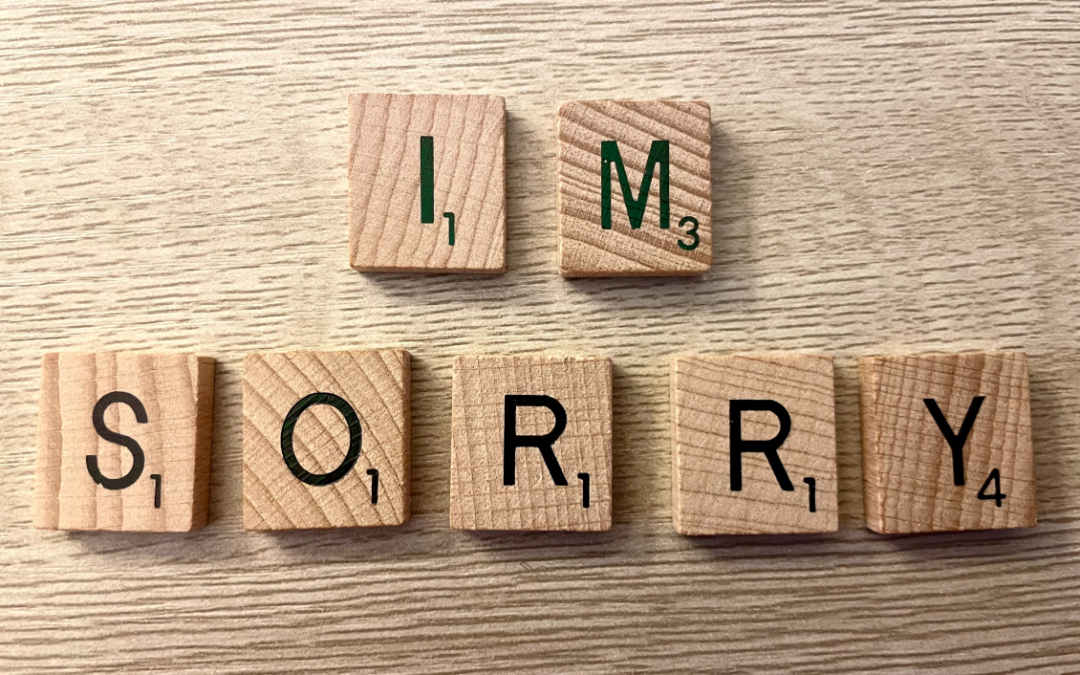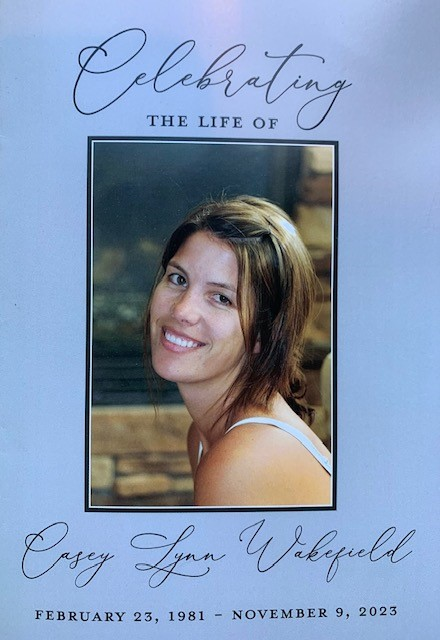“When we look back at major rifts in life’s relationships, often it is because one person could not swallow their pride and just apologize for something. Apologizing changes relationships.” –Marshall Goldsmith, Executive Coach
I recently had a bad experience with an online retailer.
I was trying to choose between two websites to order from. Being the holidays, I elected to go with the one that had a guarantee to deliver the item within 7-10 days. This guarantee of service was listed clearly on their home page.
When I hadn’t received the item I ordered after 21 days, I contacted them to inquire about the status, and request a refund if my order had not already shipped.
I received a simple response—“Your order is in process.”
I asked for more detail to which they replied, “Your order will be shipped tomorrow.”
They simply ignored the fact that they did not honor their guarantee for a shorter delivery time, and they also ignored my request for more information or a refund.
In this case, they never even offered an apology, but one thing is clear—how we apologize will have an enormous effect on the course of our lives.
If you have ever been the recipient of a poor apology, you know how it feels. Someone gives you an apology, but goes on to make so many excuses for their behavior you wish they hadn’t apologized in the first place!
On the other hand, you may have received a really great apology in the past and you know how life-giving and restorative it can be for any relationship.
It seems clear to me that some people have never developed the skill of apologizing.
Like many things, this behavior probably has its roots in childhood and family role models. More is caught than taught.
But apologizing is a habit that can be learned, practiced, and improved.
Leaders who don’t apologize create a culture where people hide their mistakes and can’t forgive their colleagues.
Parents who don’t apologize raise set a poor example and have resentful children.
Partners who don’t apologize damage trust that is essential in loving relationships.
Friends who don’t apologize end up lonely and depressed.
Companies that don’t apologize for mistakes lose customers.
Nearly all the research agrees that good relationships are essential to life happiness and fulfilment. And building the skill of apologizing is vital for keeping strong relationships.
If you aren’t good at apologies, now is your chance to reverse this habit. Don’t go the rest of your life without working on this.
Today we are going to cover some best practices for how to apologize well, and some pitfalls to avoid.
Remember the 4 R’s of an effective apology
“An apology can be one of the most profound interactions that can occur between people.” –Aaron Lazare M.D.
Author and medical doctor Aaron Lazare says that a good apology includes the 4 R’s. Recognition, Responsibility, Remorse, and Repair.
Recognition: In order to apologize, you must acknowledge that something happened. You must show that you are aware you hurt the person with your actions or words. Don’t deny, ignore, or sweep the issue under the rug. Make sure to include something specific that you can own up to. It will be more effective if you can add some detail to the mistake you made.
Responsibility: Take full ownership. Do not use language that is vague, evasive, or minimizes what you did. This will only frustrate or anger the other person. A good way to start is “I am sorry that I…(insert something specific).” A good strategy is to keep this statement super short and allow the other person to respond. This will be much more effective. Often you will see a softening of the response from the other person. Avoid the temptation to explain your actions from your point of view. Take the issue head on. Your ego will sting for a moment, but you may keep a relationship you really value.
Remorse: Apologies must be genuine in order to be effective. Say things like, “I am truly sorry that I…” or “I feel terrible about what I said/did…” or “I can see the effect my actions had on you.” Now, apology experts say that some explanation of your actions here is acceptable as long as you don’t ramble and it begins to turn into excusing your behavior. One way to do this might be, “I was up all night this week with the kids and I’ve been really stressed at work, so I can see I’m not responding well, but that’s no excuse for how I treated you.”
Repair Attempt: Finish your apology with a repair attempt. Some examples of effective repair attempts might look like this…“Is there anything I can do in the future that would help?” or “What can I do to make up for this?” or “I will really work on being less sarcastic” or “I will pay for the damages, please send me the bill.”
Things to avoid that make for a bad apology
Avoid saying things like “I am sorry this situation happened” (vague) or “I am sorry you feel this way” (evasive) or “I am sorry, I can see how sensitive you are about this” (condescending blame).
Some other statements to never use: “Mistakes were made” or “I’m sorry for whatever happened with this.”
Do you see the difference?
Although these statements contain the words “I’m sorry,” they aren’t really apologies at all, they stink. Eliminate them from your vocabulary!
Take action now
You can change your behavior.
If you aren’t good at apologies, stop making excuses and begin to build the habit of apologizing now.
It will be painful for your ego and might be difficult if your family didn’t do this growing up, but it may improve the quality of your life and work enormously.
Don’t let any more relationships suffer.
Remember, an apology is an incredible opportunity to actually make the relationship stronger.
Leaders who apologize well build a culture of people who take extreme personal ownership and correct mistakes faster instead of trying to hide them. They will also have higher team morale and cohesion. A great way to do this is to use humor and laugh at yourself.
Customers who receive a great apology from a company often develop deeper loyalty based on how the mistake was handled.
Partners who apologize well keep longer and more satisfying marriages.
Parents who apologize to their children model a vital life skill.
Friends who apologize keep longer and more fulfilling relationships.
Is there a relationship in your life right now that requires an apology that you have been avoiding?
Start small if but begin experimenting with this new behavior. Keep your apologies short and specific. Follow the model outlined above.
Have a great weekend!
Parker
Want more? Suggested Resources
- The Art of the Heartfelt Apology Harvard Health
- On Apology by Aaron Lazare MD




